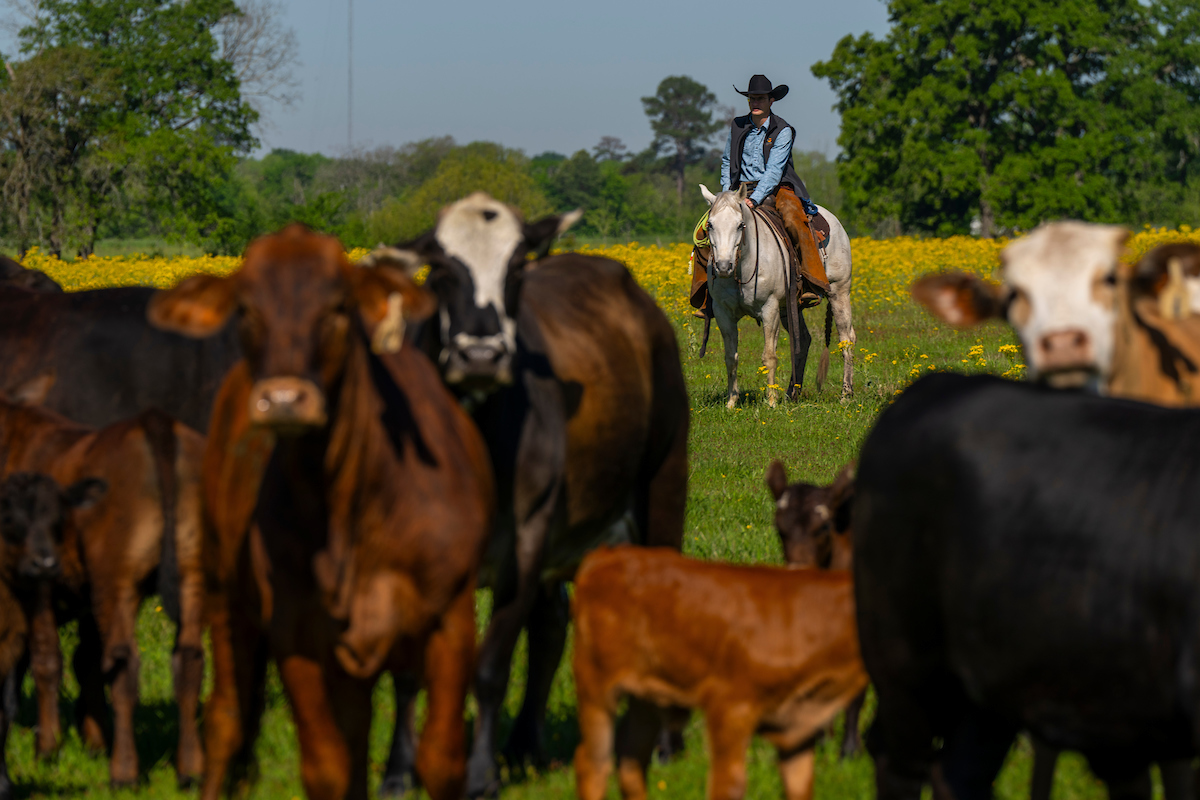Beef industry comes together for first Texas A&M Beef Sustainability Summit Nov. 11-12 in College Station
New event to discuss economic, environmental and social sustainability of the industry
The first Texas A&M Beef Sustainability Summit primer on sustainability topics related to global beef markets will take place Nov. 11-12 in the Texas A&M Annenberg Presidential Conference Center, Bryan-College Station.

The event, hosted by the Texas A&M AgriLife Extension Service and Texas A&M Department of Animal Science, is designed for industry professionals, students, agency personnel and cattle producers. It will combine the traditional wisdom that has kept ranches viable for decades with new innovative approaches to ensure the industry’s future.
Registration is $200, and the deadline is Oct. 21. Cattle producers can have their registration and travel costs reimbursed through the Rancher Resilience Grant from the National Cattlemen’s Beef Association.
The two-day event will feature expert speakers from across the country and tours and demonstrations to showcase sustainability initiatives that impact global beef markets, said Jacquelyn Prestegaard-Wilson, Ph.D., AgriLife Extension livestock sustainability specialist and an assistant professor in the Department of Animal Science.
Creating a program for beef sustainability
Prestegaard-Wilson said the event will introduce the drivers of economic and climate-centric initiatives in the industry, current research and action being conducted to reduce beef’s climate footprint, and future projects that will facilitate the future of beef and the families who raise it.
“Sustainability has become a key focus in agriculture, particularly in beef production,” she said. “As public concern over environmental impact grows, the industry finds itself at a critical juncture. Producers across the supply chain are working to address these concerns, aiming to educate stakeholders about their past, present and future efforts.”
The challenge is balancing three crucial elements: providing people with high-quality protein, supporting farmer/rancher livelihoods and maintaining ecological responsibility, she said.
“Many beef producers have been practicing sustainable methods for generations,” Prestegaard-Wilson said. “Now, significant public and private investments are being directed toward developing metrics and tools to assess the impact of various farming and ranching methods.
“Our goal is to illuminate both aspects: the traditional wisdom that has kept ranches viable for decades and the innovative approaches ensuring the industry’s future. By connecting these dots, we can fully paint a picture of beef production’s role in a sustainable food system.”
What does sustainability mean for the beef industry?
Sustainability isn’t just a modern buzzword, Prestegaard-Wilson said, but a long-standing commitment that continues to evolve. The current push for quantifiable sustainability measures is transforming abstract concepts into concrete, measurable practices. This effort is helping the industry not only to validate its existing sustainable methods but also to identify areas for improvement and innovation.
“When we talk about sustainability, we often use the image of three pillars: environmental, economic and social,” she said. “Picture a structure supported by these three elements. If any one of them weakens, the whole thing becomes unstable. This isn’t just theory; it’s the reality farmers and ranchers live every day.”
Take a cow-calf operation, for instance. To survive long-term, it needs to be profitable; the land must have enough forage and water to support the herd; and the rancher needs to find their work fulfilling and manageable, not overwhelmingly stressful.
“Striving for sustainability doesn’t mean aiming for perfection,” Prestegaard-Wilson said. “Instead, it’s about finding the right balance among these three pillars for your specific operation. It’s a continuous adjustment process, always working towards that sweet spot where your business thrives, your land flourishes, and you can take pride in your work.”
On the agenda
Registration at the event will begin at 10 a.m. along with snacks and coffee. The program will begin at 1 p.m. The agenda includes:
– Drivers for sustainability initiatives: How did we get here? – Ben Weinheimer, Texas Cattle Feeders Association president and CEO, Amarillo.
– Drivers for sustainability initiatives: Where are we going? – Jessica Gilreath, Elanco Animal Health beef technical consultant, Bryan.
– How is research addressing beef sustainability? – Pedro Carvalho, Ph.D., Colorado State University assistant professor and feedlot specialist with AgNext, Fort Collins, Colorado.
– How is the private sector evolving? – Wayne Morgan, Ph.D., Golden State Foods corporate vice president and president of protein products and operations services, Mansfield, Georgia.
On Nov. 12, the group will tour STgenetics at Navasota before returning to the Texas A&M campus for water and soil demonstrations by the Texas Grazing Land Coalition and then continue with the final discussion topics.
– How can producers profit off sustainability initiatives: Efficiency and management – Tryon Wickersham, Ph.D., professor of animal nutrition and associate head for research in the Department of Animal Science, Bryan-College Station.
– Carbon Markets and Ecosystem Services 101 – Chad Ellis, Texas Agricultural Land Trust chief executive officer, Boerne.
– The human element: How do we help our farmers/ranchers? – Myriah Johnson, Farm Credit Services of America vice president of corporate sustainability, Gainesville.
The program will conclude with a farmer/rancher panel discussing hurdles and successes, followed by an open floor discussion on “What’s next?” The panel will include Cheramie Viator, owner, Lazy 3 Cattle Company, Tomball; Lucas Neira, manager, Tiemann Land and Cattle, Thorndale; and Cody Maxwell, AgriLife Extension agriculture and natural resources agent in Fannin County.





